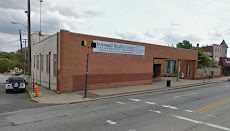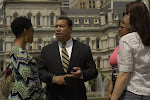Wednesday, October 31
Need Help Voting? Here's a Guide to MD's 2012 Ballot Measures
STATEWIDE QUESTIONS (1–7)*
Vote FOR or AGAINST
Thanks to Councilwoman Mary Pat Clarke for the below resource and the State Board of Elections
for its website summaries from which quotes are taken and upon
which these summaries have relied:
CONSTITUTIONAL
AMENDMENTS
1. Qualifications for Prince George ’s
County Orphans
2. Qualifications for Baltimore County
Orphans
According to a 2010
amendment to the State constitution, persons who serve as Baltimore City
These two amendments
impose the same eligibility requirements in Prince George ’s
and Baltimore Maryland
3. Suspension and Removal of Elected Officials
This amendment changes the
point at which a local or State of Maryland
Current law allows an
elected official who is found guilty or pleads guilty to remain in office until
sentencing. This amendment provides that
a local or State elected official will be suspended immediately upon the
finding of guilt, and an elected official who pleads guilty or nolo contendere
will be removed from office immediately upon making that plea.
(* “Certain crimes” are a
felony or a misdemeanor related to the elected official’s public duties and
involving moral turpitude and possible imprisonment.)
STATE REFERENDUM PETITIONS
4. THE DREAM ACT
Public Institutions of Higher Education – Tuition Rates
The State’s official
summary of this Act’s provisions is available online at: www.elections.state.md.us\elections\2012\ballot_questions.html.
This
law was enacted by the Maryland General Assembly in 2011. It has been
petitioned onto referendum by its opponents. A FOR vote keeps the law in
effect.
Students
from Maryland Maryland
Many
of Maryland ’s “undocumented” high school
graduates were brought to the United
States United
States
This
Act does not reduce the number of in-state tuition slots available to Maryland Maryland
To
be eligible for in-state tuition rates, Maryland
students must have attended a Maryland Maryland
Unlike
their USA-born classmates, undocumented students cannot receive in-state
tuition if they go directly from high school to a four-year public college.
Undocumented students must first enroll in a community college in Maryland
In
addition, this Act helps Maryland
5. Congressional Districting
Plan
A vote FOR upholds the
State of Maryland ’s redistricting plan for
election of Maryland U. S. Court Maryland
6. Civil Marriage Protection Act
“This
Act allows gay and lesbian couples to obtain a civil marriage license. Other
prohibitions and age restrictions relating to who may legally marry remain in
place.
“The
Act also provides religious protections. Religious entities retain exclusive
control … over who may marry within that faith.
No official of a religious order or body authorized to perform a
marriage ceremony may be required to celebrate or officiate any particular
marriage or religious rite of marriage in violation of the right to free
exercise of religion as guaranteed by the U. S. and Maryland constitutions, and
may not be subject to any fines or other penalties for the failure or refusal
to do so.”
For
a more complete summary:
7. Gaming Expansion
This referendum:
“1) authorizes video
lottery operation licensees to operate “table games”,
2) increases from 15,000 to 16,500 the maximum
number of video lottery terminals [slot
machines]that may be operated in the State; and
3) increases from five to six the maximum number of
video lottery operation licenses that may be awarded in the State and allows a
video lottery facility to operate in Prince
George
….
“If
the voters statewide approve this referendum, other changes to current law will
take effect, including:
- allowing a video lottery
facility to operate 24 hours a day, 7 days a week….
- altering the
distribution of and required uses of video lottery terminal proceeds.
- providing for the
distribution of proceeds from the operation of table games.”
Additionally, the State's
tax rate on slots will decrease, so that the previously approved casinos will
be financially compensated for the additional competition of the new casino in Prince George
CITY BOND ISSUES (A –
I)
Bonds are loans. They have to be repaid. Revenue
bonds are loans which pay for themselves. For example, a loan to build a
parking garage is repaid by the revenue from parking fees. General Obligation (G. O.) bonds are different.
They are loans the City takes out to build, expand, and improve the schools,
parks, libraries, zoos and museums which enrich our lives but are not
structured to generate the revenue to pay off the debt. To repay G. O. bonds, the City relies on local tax
revenues.
The $100 million in G. O. bonds on November’s
ballot will last for two years, July 1, 2013 – June 30, 2015. The City will
repay these bonds at $7.4 million a year for 20 years in its annual budget.
Because the City relies on our annual taxes to repay these bonds, the City needs
our “yes” vote to take out each one of these loans, which are for:
A. SCHOOLS: $34M
To help complete funding
for the new Waverly School #51, build a new elementary school in Uplands,
and upgrade boilers, roofs, HVAC, in other Baltimore
B. RECREATION & PARKS: $8M
To improve pools,
recreation centers, parks and playgrounds throughout the City.
C. COMMUNITY DEVELOPMENT: $24M
For the Housing Department
to stabilize vacant properties, demolish blighted structures, make home
improvement loans and grants, shelter the homeless.
D. ECONOMIC DEVELOPMENT: $15.8M
For capital improvements
helping businesses and smaller cultural icons such as Visionary Arts Museum,
Center Stage, Constellation, Everyman Theatre, MICA.
E. PUBLIC BUILDINGS &
ENOCH PRATT FREE LIBRARY: $17M
For public building
upgrades.
F. WALTERS ART MUSEUM
To help fund an “all
points” renovation of Baltimore
G. MARYLAND
ZOO IN BALTIMORE
To help fund a new penguin
exhibit where visitors can keep dry while watching penguins enjoy their
underwater swims.
H. MARYLAND SCIENCE
CENTER
To help fund new
elevators.
I. BALTIMORE MUSEUM
To help fund exhibit space
for BMA’s American and African exhibitions.
J. STORMWATER UTILITY
This Charter amendment
permits the Mayor and City Council to establish a stormwater utility fund whose
purpose is to minimize pollution to our watersheds, streams, harbor and bay
from the litter, nutrients and sediment flushed into our storm drains during
heavy rains. This fund will be self-sustaining through fees to be established
through ordinance.
Background
The Maryland General
Assembly has mandated that the City and certain other counties implement a
stormwater fee and fund by July 1, 2013, with bonding authority to finance
capital projects. (House
Bill 987, Stormwater Management – Watershed Protection and Restoration Program,
signed into law on May 2, 2012.)
K.MUNICIPAL ELECTIONS
This
Charter amendment asks voters to change City Charter language to reflect
Maryland General Assembly legislation which eliminates the current City
election cycle and puts Baltimore
City
Background
Voter
turnout was dismally low in the Baltimore
City Baltimore City
In its regular 2012
session, the Maryland General Assembly chose the presidential cycle by enacting
House Bill 250
which incorporates our City primary and general election dates into the
presidential cycle. The Governor signed
HB 250 into law on May 22, 2012, with an effective date of January 1,
2013.
L. MINORITY PARTY
REPRESENTATION ON
BOARDS &
COMMISSIONS
Democrats are the majority
political party in Baltimore (i.e., the party with the most voters in local
elections); and, Republicans have long been recognized as the minority party. To ensure balanced representation, the City
Charter currently requires that certain City Boards and Commissions must
include at least one or two Mayoral appointments from that minority Republican
Party.
This Charter amendment
keeps the same minority appointment requirements but expands the definition of
“minority party” to also include all registered voters who are NOT REGISTERED
AS DEMOCRATS, including Republicans, Independents, Green Party and other third
party members. In appointing Board and Commission members, the Mayor would now
be able to fill the one or two “minority party” positions with registered
voters from a broader and updated spectrum of candidates.
M. QUADRENNIAL AGENCY AUDITS
This Charter amendment
requires that 13 major City agencies be audited at least once in every
four-year term of the Mayor and City Council, beginning in January 2014.
Those agencies are
Finance, Law, Public Works, Fire, Police, Housing, Baltimore Development
Corporation (BDC), Recreation and Parks, Transportation, General Services,
Planning, Human Resources, and the Mayor’s Office of Information Technology.
These are financial audits
of accounts, revenues and receipts and/or performance audits which assess
whether an agency is operating economically and efficiently --- and
recommending corrective actions for improving performance if appropriate.
The City Comptroller
oversees the City’s Department of Audits which will conduct the required audits
and/or contract some of the work to independent CPAs and firms.
Subscribe to:
Post Comments (Atom)








No comments:
Post a Comment